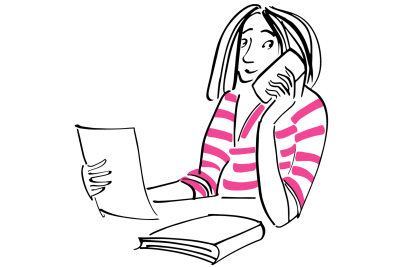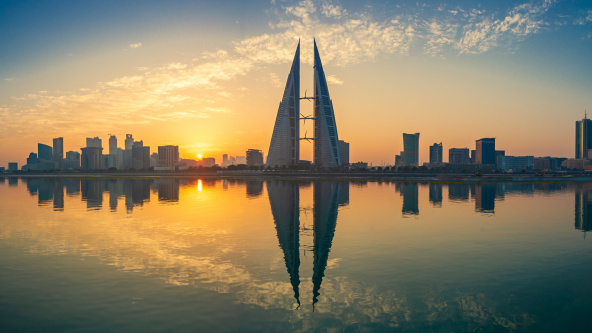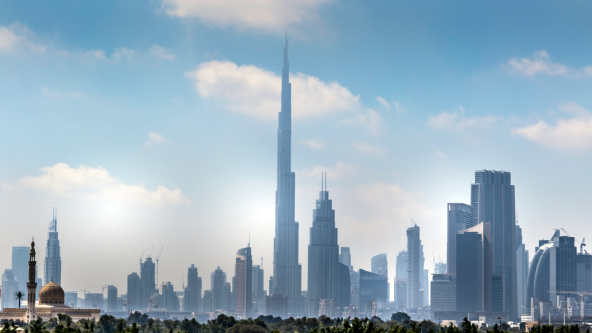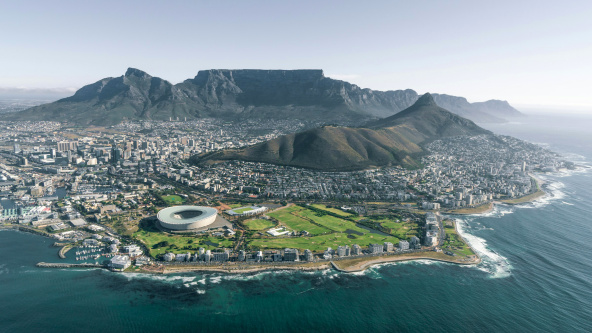Living in Bahrain: an expat guide
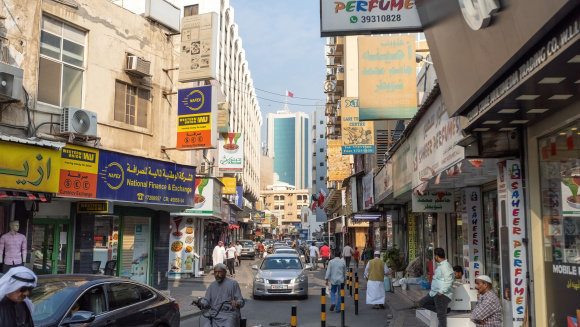
What to expect when moving to Bahrain
Moves to the Middle East can be nerve-wracking. How strictly Muslim is the country? What can and can’t I do? The removal company’s list of prohibited items (no pork, no alcohol, no anti-Islamic literature, nothing related to Israel, and so on) has you scouring your bookshelves and belongings in panic before you have even started to pack.
Bahrain is one of the most liberal Gulf States. Women can drive and work. Foreign women do not have to cover their heads or wear abayas (floor-length cloaks) though modest dress is advisable, pork and alcohol can easily be purchased, and many restaurants are licensed.
Although there is a mosque on every corner, locals are not obliged to attend prayers (although many do) and other religions are openly practised. There are well-established Anglican and Catholic churches and even a synagogue.
The pearl of the Arabian Gulf
Bahrain is an archipelago of over 30 islands, most of which are uninhabited. Bridges and causeways link the three main islands (Bahrain Island, Muharraq, and Sitra) and you can drive across the largest, Bahrain Island, in about half an hour, so it doesn’t take long to get orientated.
The tourist blurb may call it the ‘pearl of the Arabian Gulf’ but Bahrain is not a physically beautiful place. There is no spectacular desert scenery (most of the desert is crisscrossed by oil and gas pipelines) and no long, pristine sandy beaches.
While remnants of its past are there — the forts, the palaces, the souq — the Bahrain of old, when the north of the island was covered in palms and fishermen and pearl divers strolled from their houses to the sea, is long gone. In its place are the shiny skyscrapers of Manama, large highways, shopping malls, hotels, and office blocks. The outskirts of Manama, particularly the local villages, can be very shabby and rundown.
Meeting Bahrainis
With fewer government handouts than in other Gulf states, the locals need to work and so office workers, taxi drivers, and shop assistants are often Bahraini, which somehow makes the place more real. Some areas are very local but many wealthier Bahrainis have been educated in Western schools and universities and live alongside expats, sending their kids to international schools.
It is easy to meet Bahrainis and they are generally friendly and enormously proud of their country and culture.
It is easy to meet Bahrainis and they are generally friendly and enormously proud of their country and culture. Many expats have good Bahraini friends. Nearly everyone speaks English, so you will not need to learn Arabic unless you are really keen.
Inshallah
As in any new country, expats do experience initial frustrations. ‘Inshallah’ is usually the first Arabic word a newcomer learns. Literally meaning, ‘if God wills it’ or ‘God willing’, it is used to excuse the tardiness, non-arrival, or non-performance of anything and everything. Will my electricity be connected today? Inshallah. Will my car be ready today? Inshallah. Maybe it is the heat, but Bahrainis do not like to hurry.
Where to live in Bahrain
Most expats live on Bahrain Island, either in Manama or in Saar, Budaiya and Hamala to the west. More are moving onto Muharraq Island, where beachside developments have sprung up on reclaimed land, including in Riffa, home to Naseem International School, Riffa Views International School, and the special needs school, The Children's Academy.
Renting accommodation
There is a wide variety of accommodation, ranging from apartments to stand-alone villas and gated compounds. Lots of expats work as real estate agents, so finding a native English speaker to help you out is easy, or you can scour listings on property websites or the daily English language newspaper, the Gulf Daily News.
Simply driving around looking for ‘to let’ signs can also reap benefits and if you are interested in a particular compound, befriend the gateman and ask him to let you know if something is coming up.
When you find a property you like, make sure you agree in advance with the landlord what work needs doing (check air conditioning in particular) as some landlords become unresponsive once you are settled and paying rent. Repainting and cleaning are the norm, but many tenants manage to negotiate new appliances, bathrooms, kitchens, and curtains, so do not be afraid to ask.
Getting started in Bahrain
Utilities
Most cookers in older rental accommodation run on gas. Bahrain does not have mains gas so you need to order cylinders from one of the gas supply companies such as Bahrain Gas. You will need to buy the initial cylinders and thereafter need only pay for refills. Be sure to keep a spare.
The water quality in Bahrain is improving but is still not great so everyone drinks bottled water. Again, you will need to sign up with a water delivery company to get water delivered to the door and you will need to buy a water cooler (available from all large supermarkets).
Getting phone and internet connection
Staying connected is easy with generally good internet connections (though they can be slow at the weekend) and a choice of mobile phone providers and packages, though to sign up you will first need your ID Card.
Setting up a bank account
Banking arrangements are relatively straightforward to set up with most people using one of the many global banks or online banking.
Finding home help
Most families in Bahrain have some sort of domestic help, ranging from a full-time live-in maid to a cleaner who comes in a couple of times a week. Gardeners often come with the accommodation and will also wash your car for you. The best way to find domestic help is by word of mouth, although you may well find a string of potentials knocking on your door the day you move in. Make sure you get references if possible.
You might have to sponsor a full-time maid (take over her visa) although some do work on ‘free visas’ where they have a Bahraini sponsor who allows them to work elsewhere, but this is illegal. Some people use agencies to find a maid.
While the idea of domestic help (full or part-time) may be new to you, two things to bear in mind are the lack of crèches and babysitting agencies in Bahrain and the weather. As well as being hot and humid in summer (imagine standing in a steam room with a hot hairdryer blowing in your face), Bahrain is very dusty all year round and keeping your house clean is a daily grind.
Healthcare and health insurance
Health and dental care are good but expensive without health insurance. There are several large private hospitals and numerous dental clinics, so you will not have to head home for general medical care, though some prefer to return to their home countries for very specialist treatments.
For those without insurance, the main public hospital is Salmaniya Medical Complex. The medical care there is good but there are often long queues and waiting lists. Bear in mind also that men are not allowed in some parts of this hospital, such as the maternity wards. You can also find expats practising as chiropractors, naturopaths, physios, and reflexologists, as well as numerous Indian health centres offering alternative treatments and massage.
Day-to-day living in Bahrain
Trying to organise everything on your own can be time-consuming and frustrating. Most larger employers have a well-connected ‘fixer’ who will whisk you from place to place, jump endless queues, and make sure you manage to wade through the bureaucracy as smoothly as possible.
Driving
The driving in Bahrain is awful and at times downright dangerous. Illegal manoeuvres and accidents are commonplace and seatbelts are rarely worn by locals. It is not uncommon to see kids lying on dashboards or with heads stuck out of sunshine roofs while their parents hurtle at 120km per hour down the motorway.
On the plus side, petrol is incredibly cheap, being heavily subsidised, so the 4X4 bought for safety reasons will not cost much to fill up. Most large car companies have dealerships here and there are also plenty of second-hand car dealers. Many decide to hire a car, rather than buy, especially if they are on a relatively short contract and all the major car hire companies are also represented. As with houses, make sure the air conditioning works well.
If you do not want to drive, employing a driver or taking taxis are the best alternatives. There is a limited bus service, but the buses are ancient and erratic and not used by expats and there is no other form of public transport. Private companies do operate bus services to the schools and you will need to arrange this with them directly.
Shopping
Food shopping in Bahrain is easy. A whole range of supermarkets will pretty much cater for all your needs, including pork, which you buy from the special pork sections in the larger shops.
Specialist Asian supermarkets cater to the large Asian expat community, local bakeries make delicious Arabic flatbread, and the ubiquitous cold stores (corner shops) have an amazing supply of goodies. If you cannot see what you want, ask, and they can inevitably produce it from under the counter somewhere. Most will also deliver small items to your house if you call them — handy if you have forgotten that pint of milk.
Supply problems sometimes arise, with certain items suddenly not being available for weeks on end and reasonably priced organic products are few and far between, particularly organic meat. You can buy alcohol from special outlets, whose number is diminishing as local MPs continue to resist its sale.
The large malls offer a familiar range of clothes stores, sports shops, and media shops. For a more authentic shopping experience, you can head to the souq. Remember to dress appropriately and prepare to be hassled into buying several mosque alarm clocks and a herd of singing camels. These are also an excellent place to have jewellery made or mended or to buy fabric. It is also worth checking out the pottery at A’Ali for special Bahraini pots and lamps and keeping an eye on the active local art scene.
Eating out
Bahrain has a host of excellent restaurants catering not only to residents but also to the large influx of weekenders from the more conservative Saudi Arabia, Kuwait, and Qatar. Unusually for the Gulf, many of the better restaurants are licensed and are not in hotels. The Block 338 area of Adliya is home to many of the best restaurants, ranging from upmarket Italian to Asian fusion or steak houses.
Meeting new people
As well as being geographically small, Bahrain’s expat community is also small and you will soon find yourself running into people you know all over the place. Clubs are a good place to meet people and most are members of at least one, the British Club, the Dilmun Club, the Yacht Club, and the Rugby Club being the most popular. Some of the large hotels, such as the Ritz, have beach clubs. The American Women’s Association is very active, running all sorts of events.
Tennis, golf, and horse riding are popular; there are book clubs language schools and classes in everything from pilates to pottery.
Where to go and what to see
While it does have tourist attractions including waterparks, an excellent museum, and heritage areas, Bahrain is small and, finances permitting, you will probably want to explore further afield in the region. Popular weekend destinations include Dubai, Oman, and Abu Dhabi, while India, Sri Lanka, Turkey, Jordan, Greece, and Cyprus are all only a few hours' flight away.
The last word
Despite being one of the easiest Middle Eastern countries to live in, don't be surprised if you suffer some culture shock after the excitement of the first few weeks has worn off; the heat, the dust, and the 'Inshallah' culture can wear down the hardiest of newcomers. From experience, the easiest way to overcome this is to kick back and learn to do things at Bahrain pace – it will make life much less stressful! Above all, enjoy the outdoor lifestyle (another weekend, another pool party) and the very friendly and active social scene – it's the people who make this place special.
If you’re looking for a school abroad, our expert consultants can advise on all aspects of international education, from schools to local educational scenes.
Tags: Family
